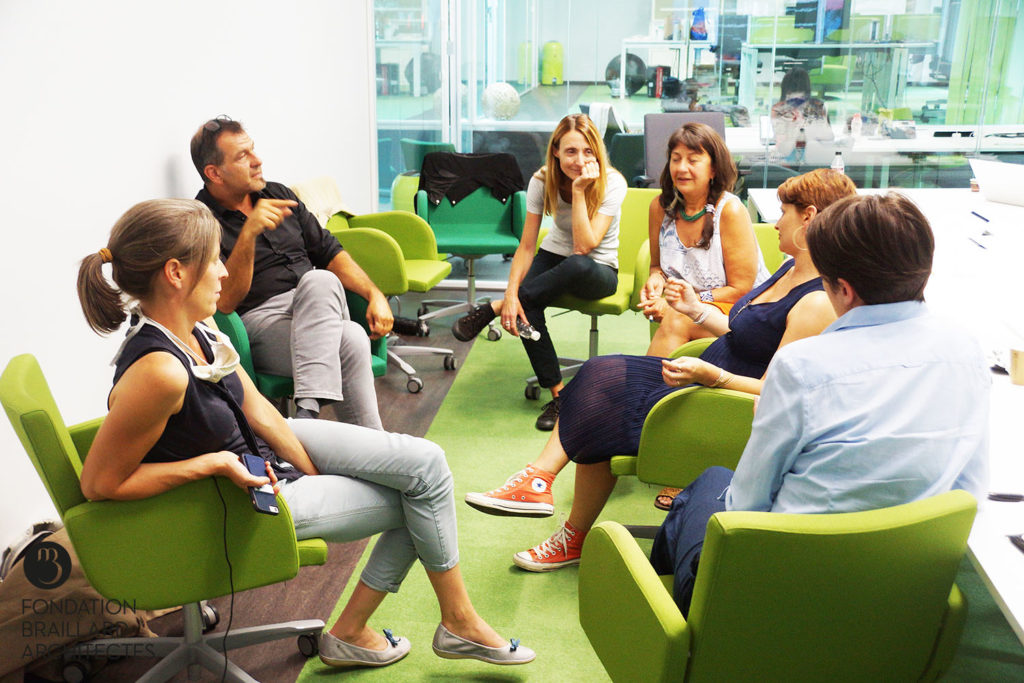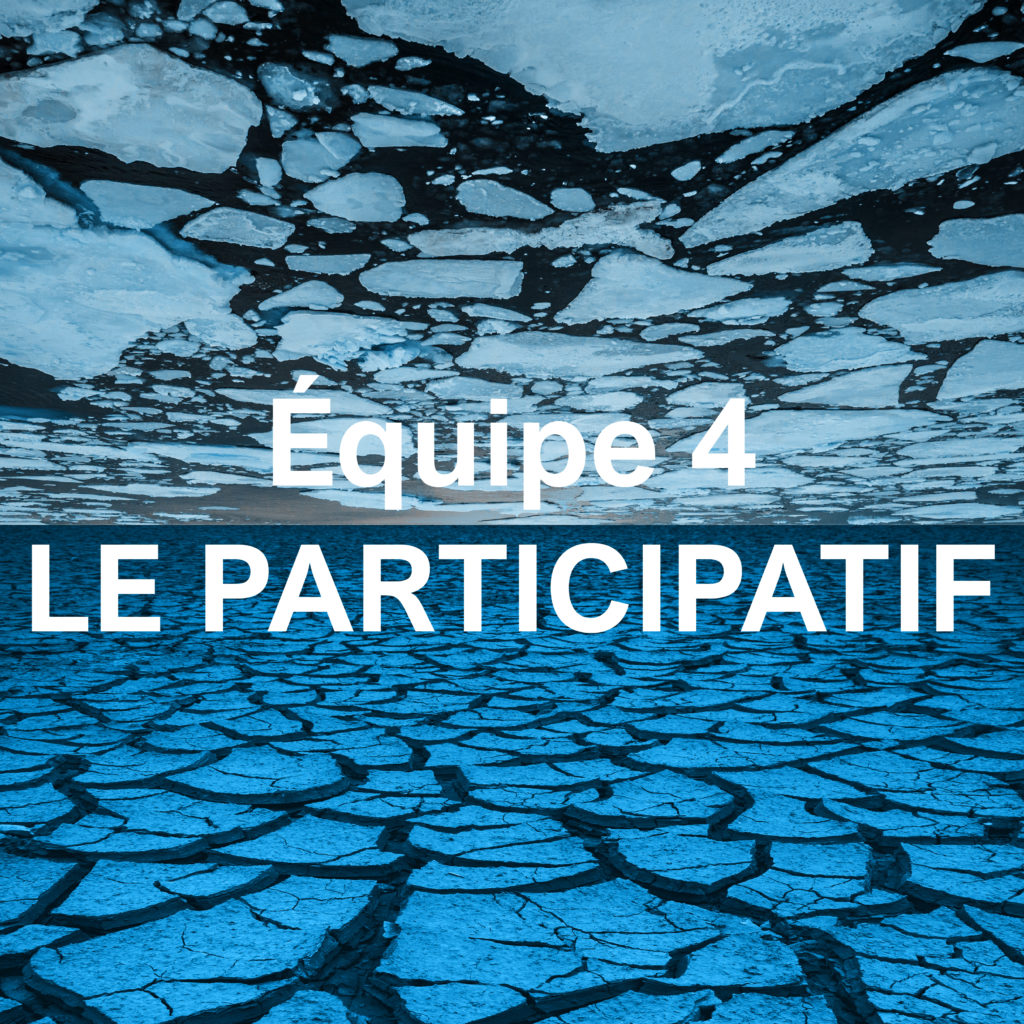Decarbonisation laboratory
Participation as a project process
According to the team, lifestyle choices must fall under four common principles in order to be joyfully sober: preserve living ecosystems (thanks to) a collaborative society, a social and inclusive economy as well as an architecture of “modesty”.
Living ecosystems should be represented differently than by the logic of ecosystem services (too anthropocentric and interested), thanks to a synergistic conception of man with his environment (for example: Voralberg) and in particular by integrating seasonality in biodiversity and agriculture.
Because it is horizontal, the collaborative society would be based on a moderate circulation of goods and people, integral recycling, local and healthy food, and ways of living that grant time and opportunity for community and associative life.
The economic logic should move from production (of goods, square metres, etc.) to reproduction and the professions of ecological transition (agriculture and repair/reuse of materials).
In accordance with local resources, reuse/rehabilitation/reconstruction (the 3Rs), architecture and construction should move towards living dynamics and aim for scalability and modularity.
The participation processes can be thought of as laboratories researching topics such as biodiversity, food, habitat/building, mobility and economy.
The participation process spans over several stages:
- Reading blockages and possibilities
- Inviting stakeholders (institutions, associations, communities, etc.) to debate the idea of decarbonisation
- Imagining possibilities and representing them spatially
- Retro-feeding the process to grant it sustainability over time
All this must take place in a local space intended for negotiations and be facilitated by public authorities and the local community.

Team
- Marcella VIEIRA CAMARGO
EPFL student
Brazilian, descendant of the Guarani ethnic group, anthropologist, eco-feminist. I have been working for over 20 years as an action-research facilitator in social and cultural movements. Doctoral student in urban planning, I am currently benefiting from an exchange programme between IPPUR/UFRJ Brazil and Lasur/EPFL. My research focuses on the right to the city and the common formation between the different perspectives of saying and living the city (natives, LGBTIS+, POC, etc.). - Julie MARTIN
Registered architect, ENSA Grenoble
My practice, both in an architectural firm and in teaching, raises questions about the project’s role with regard to the fragility of living it. My professional outlook was first honed within INCA architects, an agency specialising in enhancing classified, sensitive sites with high heritage and environmental value, both built and unbuilt. Today, my doctoral thesis explores the relationship between territory and architectural project; the Greater Geneva belongs to my corpus, and in this context, I am following up on the call for projects entitled “To inhabit the landscape city of the 21st century” of the Braillard Architects Foundation by focusing on questions regarding the representation of announced issues. - Gwenaëlle ZUNINO
Registered architect, Nancy School of Architecture
Architect-urban planner, associate lecturer on Cities and Territories at the Nancy School of Architecture and researcher at the Laboratory of the History of Contemporary Architecture (LHAC). She is also responsible for setting up and running the New ruralities – Architecture and living environments Research chair. Having worked for 15 years at the Paris Region Institute, she also joined the Urban & Landscape Project Club of the French network of urban planning agencies (FNAU) since 2010. - Sabrina HELLE-RUSSO
Geographer
Initially socio-professional dedicated to the development of banking skills and initial and continuing professional training in Romandy, I then branched out into an academic course in Educational Sciences, completed with a Master in political and cultural geography at the University of Geneva. More in line with my personal convictions and cosmopolitan civic vision, I specialised in the analysis of vulnerable contexts by taking a critical look at social processes and governance modes to regulate space and reduce social, gender and territorial inequalities. From the carceral institution to the illegality of homeless people in Geneva, I was interested in the forms of urbanisation and naming of African cities in particular. How does the political function of the name of places (toponymy) produce and invisibilise inequitable processes in historical time? At the same time, I received training in the field of international development cooperation. I volunteer at the Technical Commission of the Geneva federation for cooperation and development (FGC), the administrative Detention Commission of the Swiss League of Human Rights Geneva, the Actares association (sustainable shareholding) in Romandy, and more occasionally the Security for Human Rights Association (SHR) co-lab in Geneva.

